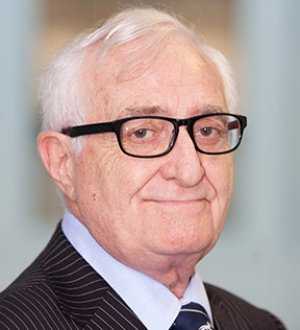
Through the work of Dr Julian Tudor-Hart, who sadly passed away in July of this year, the village of Glyncorrwg will be written in the annals of history as the birthplace of the ‘inverse care law’, and of preventative medicine as we know it today.
Julian was able to carry out such important work thanks to an extraordinary – and reciprocated – bond of trust with his community. He described this as an ‘unglamorous slog’ of building trust over many years and appointments, in order to move ‘from face-to-face to side-by-side consultations’ with his patients, so that they became equal partners in their own care. Their cooperation with Julian and shared responsibility was duly rewarded by better health, with Glyncorrwg recording a fall in smoking in the adult population from 56% to 25% over 25 years and having a much lower death rate than other equivalent communities.
Some would argue that Julian Tudor-Hart’s ability to connect with a community over a sustained period of time is owed to a particular time and model of care: the village GP who knew and was known by all in their community. Now shared practices, locum positions and flexible contracts mean that an individual may see many GPs within a few years of living in a community.
But while continuity of care may seem to be an aspiration of a bygone age, there are many ways we can still build trust and empathy in tomorrow’s health and care system.
We can learn from giants like Julian Tudor-Hart and pioneer new, innovative ways to embed a culture of commitment and empathy in our services
The Bevan Commission, a health and care think tank based in Wales, recently advocated for ‘core health carers’, a role which puts the patient first and, as such, may offer a new solution to providing consistency of care in the 21st century, while remaining faithful to the pioneering approach of Julian Tudor-Hart.
A generation of Bevan Commission Exemplars are now trialling, refining and implementing innovative ideas across NHS Wales including many GPs such as Nefyn-based Dr Arfon Williams, who used the skills of his practice team and patients to better prioritise and manage his practice; Dr Tony Downs, based in Connah’s Quay, whose storytelling approach to chronic fatigue syndromes has vastly improved patient experiences; and Dr Chris Stockport in Prestatyn who works with a ‘Patient Panel’ for continuous feedback and to co-design primary care services.
There is no denying that the challenges of the future of healthcare look very different to its past. However we can continue to learn from giants like Julian Tudor-Hart and pioneer new, innovative ways to embed a culture of commitment and empathy in our services. The benefits of a reciprocal relationship between people, patients and healthcare professionals are clear; the only limiting factor is whether we will be bold enough to invest fully in redrawing this relationship.
As we know, Julian Tudor-Hart transformed preventative medicine forever from his garden shed in Glyncorrwg. Now is the time for us to sow the seeds for the next health and care revolution.
Professor Sir Mansel Aylward is Chair of the Bevan Commission, Director of the Centre for Psychosocial and Disability Research at Cardiff University and Professor for Prudent Health and Well-being at Swansea University
Pulse October survey
Take our July 2025 survey to potentially win £1.000 worth of tokens












